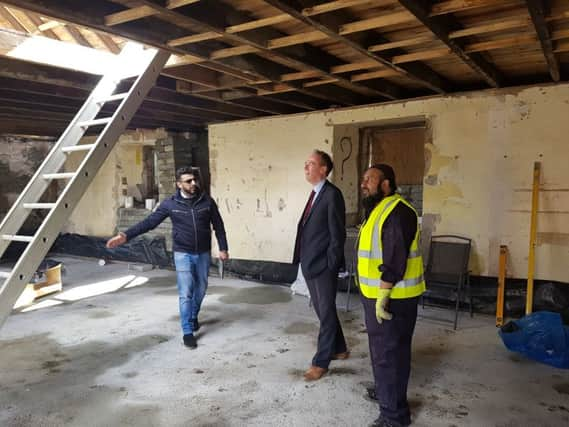First mosque in Western Isles opens doors


The place of worship has been created out of a semi-derelict house in Stornoway.
It marks the first time the archipelago’s small Muslim community has had a dedicated place to gather and pray.
Advertisement
Hide AdAdvertisement
Hide AdUntil now, families have worshipped in their own homes, or booked community halls in the area in order to hold group celebrations during religious festivals.
Now, the mosque will play a key role during the Islamic month of Ramadan, which begins on 15 May.
The project was spearheaded by Aihtsham Rashid, a mosque builder from Leeds. He supported fundraising efforts which accrued more than £59,000 towards the cost of the mosque.
The conversion was completed in just under four weeks, with the underlay and carpets fitted in the last 48 hours.
Mohamed Ahmed, one of the campaigners behind the initiative, was among those helping with last minute preparations today.
He said: “It’s hectic at the moment. People should forget wanting to become footballers, they should build mosques - you get more attention, and you raise money for good people as well.”
The mosque’s grand opening is taking place this afternoon, with everyone on the Western Isles invited to attend.
The Muslim community on the Western Isles, which dates back to 1945, currently consists of more than 50 people. The community once numbered around 80 people in the 1980s and 1990s, but fell away to around a third of that. It has since grown again after families fleeing the conflict in Syria were resettled in the islands.
Advertisement
Hide AdAdvertisement
Hide AdThe 26 refugees who have settled on Lewis are among 1,800 people who have found new homes in Scotland.
While the mosque has been widely welcomed, with donations to a crowdfunding campaign coming from as far afield as the US and South Africa, it has been criticised by some.
In a statement issued last year after the scheme was granted planning permission, the Free Church of Scotland (Continuing) described it as a “most unwelcome development.”